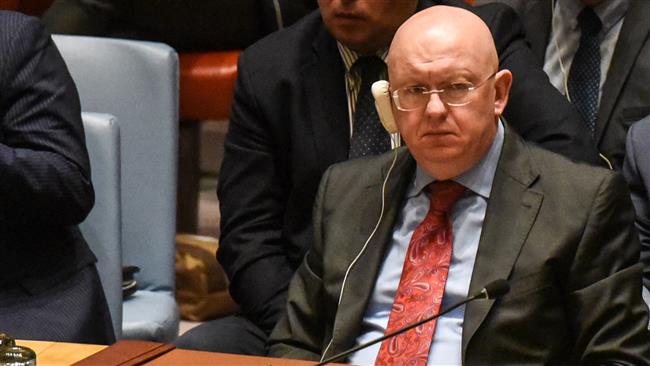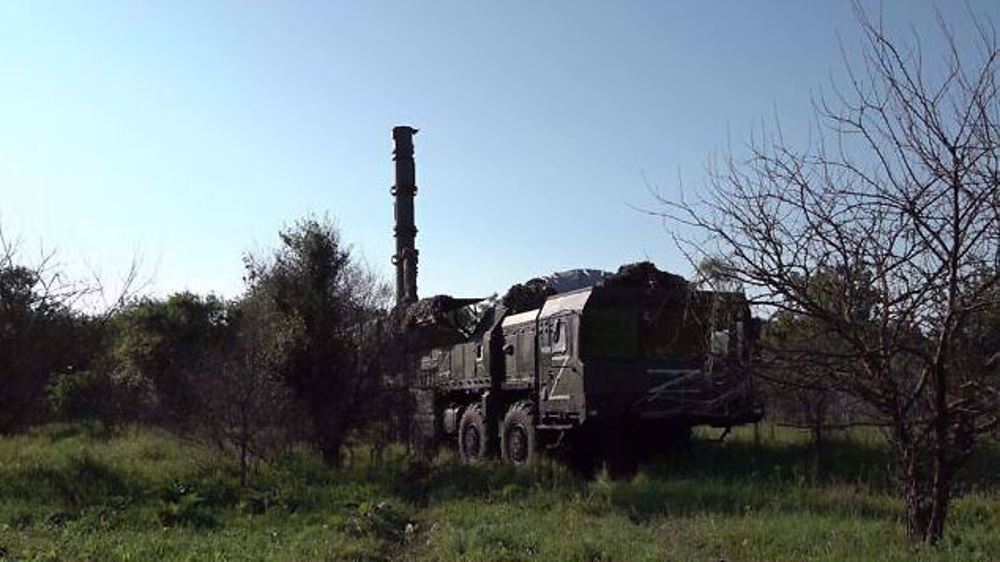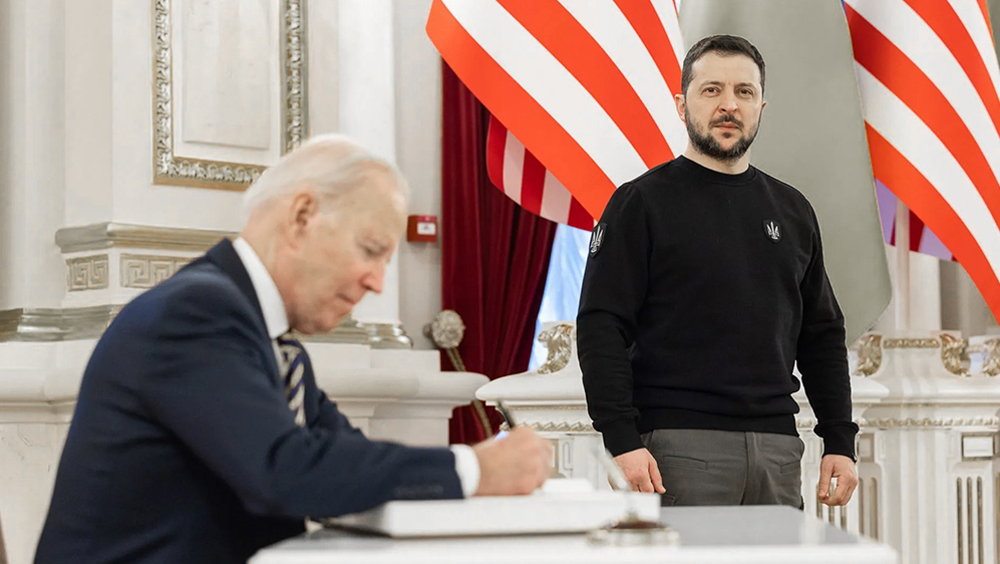US, allies seeking to partition Syria, says Russia's UN envoy
Russia's Ambassador to the United Nations Vassily Nebenzia has accused the US and its allies of trying to partition Syria by setting up local governing bodies in areas seized from terrorists, according to Russian media.
Nebenzia said Wednesday that the US-led coalition in Syria was discussing measures to restore the country's economy with the local governments instead of the Syrian government.
"What the coalition is doing amounts to concrete steps to partition the country," the official was quoted as saying at a United Nations Security Council session.
Russia has been conducting air raids against Daesh and other terrorist groups inside Syria at the Damascus government’s request since September 2015.
On the contrary, the US and its allies have been running a military campaign against purported terrorist targets in Syria since September 2014 without a mandate from the UN or Damascus, while backing militants fighting to topple the government of Syrian President Bashar al-Assad.
The airstrikes have on many occasions resulted in civilian casualties and failed to fulfill their declared aim of countering terrorism.
Despite the Western hostilities, however, Syria has been able to recapture most of its terrorist-held lands with military advisory support from Iran and Russia.
According to UN relief chief Mark Lowcock, the conflict in the Arab country has left over 13 million Syrians in need of humanitarian assistance, with 6.3 million in “acute need” of aid.
'Aid delivery system undermines Syria sovereignty'
Elsewhere in his remarks, Nebenzia said Wednesday that the current aid distribution system in Syria was also undermining the Arab country's "sovereignty."
"This mechanism cannot remain as it presently stands," he said, vowing to push for changes to a UN resolution that allows cross-border aid deliveries to Syria's terrorist-held areas from Turkey and Jordan without the Syrian government's approval.
"There needs to be order in the distribution of humanitarian assistance for it not to fall in the hands of terrorists and for it not to then be re-sold to the Syrian people at higher prices."
Sweden and Japan are leading negotiations at the Security Council to renew the resolution, which is set to expire on January 10.
US vetoing of Gaza ceasefire resolution ‘disgraceful’: Iran’s UN envoy
VIDEO | IAEA adopts anti-Iran resolution tabled by E3
VIDEO | Iran's president urges Pope to help end Israel's onslaught in Gaza
Iran's senior legal official: ICC arrest warrant for Netanyahu ‘great victory'
Nov. 21: ‘Axis of Resistance’ operations against Israeli occupation
VIDEO | Israeli forces storm West Bank’s Jenin again, target civilians
Iran activates advanced centrifuges after IAEA's 'unjust' resolution
VIDEO | Press TV's news headlines












 This makes it easy to access the Press TV website
This makes it easy to access the Press TV website